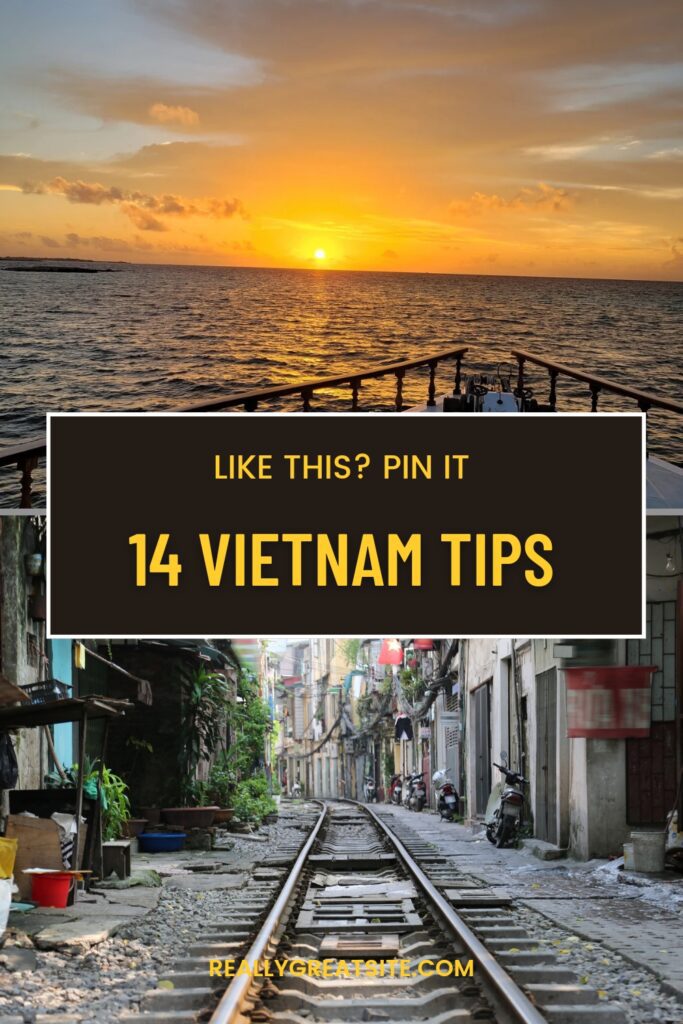Vietnam is a vibrant country with a rich cultural heritage, if you have never been and have some questions, below are 14 helpful Vietnam travel tips
Vietnams size can be misleading. It looks small on a map, just a sliver of a country, but it is 1800km at least north to south.it an take approx 36 hiurs by train to go from Hanoi to Ho Chi Minh.
A reasonable length of time to see most places and travel top to bottom would be around 3 weeks, so plan a rough itinerary
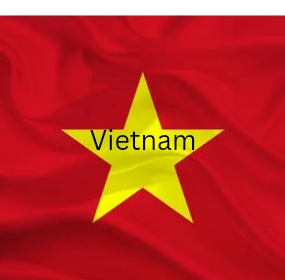
The other thing to consider is weather. Being 1800km long the weather can be very different in the north, central and south areas. So you may need to pack clothing for cold, wet ans baking hot
Do you need a visa to travel to Vietnam with a UK passport?
For a holiday up to 45 days, you do not need to apply for a visa.
If you plan on staying longer, you will need to get a visa or Visa on Arrival Letter (VOA) in advance of travelling. You can apply for a visa from the Vietnam Embassy
Another option is applying for an e-visa online through the online portal. E-visas are issued for stays of up to 90 days. Vietnam evisa – National portal on Immigration
You can do this yourself and dont need any online agency/tour operator to help
Finally, it’s important that your passport must be valid for at least 6 months after the date of your arrival in Vietnam.
Facemasks
When travelling in Vietnam or Asia in general, don’t be worried if you see locals wearing facemasks.
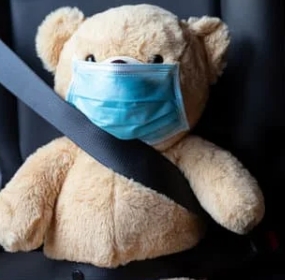
Like other countries in Asia, people in Vietnam wore face masks before the pandemic. Facemasks are a part of Vietnamese culture rather than protecting themselves against airborne viruses, so there is no need to panic.
Can I drink the water in Vietnam?
To avoid any adverse effects, avoid drinking local tap water where you can. Many hotels will provide filtered/ bottled water for you to drink. Also avoid ice in drinks from street vendors (bars etc are ok as they make them with filtered water). Following this simple yet essential travel tip can prevent unwanted illnesses during your stay in Vietnam.

Get a Local Sim Card – or eSim
Get a local SIM card. This can save you a lot of money on roaming fees while providing you with continuous internet access.
Many travellers opt to get a local SIM card at big airports like Ho Chi Minh City or Hanoi. They are accessible at numerous kiosks and local shops, with various data and calling options geared to travellers’ needs.
You can also get eSims if your phone is compatible, we use Airarlo for our eSims
With a local e/SIM card, you can use maps, book rides, check timetables etc while not connecteed to wifi
What is the Vietnamese currency?
The currency in Vietnam is the Dong, VND.
The rate of exchange is approximately Dong 30,000 to the pound. Dong is best obtained upon arrival and easily exchanged with major currencies (USD, GBP Euros).
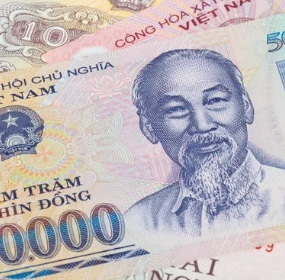
Cash machines are available and accept all major cards
Credit cards are widely accepted in the big cities but cash is still king in smaller places
Contactless payments are also quite common in the big cities now.
It can be worthwhile letting your bank know that you are travelling to Vietnam so that they don’t block your card based on ‘suspicious activity.’
Learn a few phrases
Here’s one of the essential Vietnam travel tips: learn a few key Vietnamese phrases.
Familiarizing yourself with basic expressions like “Xin chào” (Hello) and “Cảm ơn” (Thank you) will not only enhance your trip but help you connect with the local people.
We always try to learn Hello, Goodbye, Please, Thank you, Yes, No and the important one – two beers please. Consider picking up a phrasebook or using a language app to learn some essential phrases.
These small efforts can often lead to more authentic interactions and can be a sign of respect towards the country’s heritage.
Avoiding Scams
Travelling to Vietnam can be a fun and enriching experience, but like many tourist destinations, it’s not without risks. Scammers prey on uninformed travellers and being aware of common scams is the first step towards avoiding them.
Taxi Scams: Some taxi drivers may take long routes or have rigged meters. Stick to reputable companies and use metered taxis or ridesharing apps. Grab and Bolt are the most used in Vietnam
Street Vendor Scams: Overcharging is common. Always agree on a price before accepting goods or services. It can be helpful to ask a local for a fair price beforehand. – also see below regarding Barteering
Motorbike Rental Scams: Sometimes, rented motorbikes are reported as stolen by the rental company, and the traveller is forced to pay a hefty fee. Rent from reputable companies and take photos or a video of the vehicle as proof of its condition, ideally in the presence of the person renting you the bike.
Fake Travel Agencies: Book tours and tickets through reputable agencies as there are many fake ones offering non-existent services.
Hotel Scams: Some hotels may claim that your reservation is lost and then overcharge for a room. It’s wise to have a printed copy of your booking confirmation.
To avoid these and other scams, thoroughly research standard practices and prices in the area you are visiting. Always trust your instincts, and when in doubt, seek advice from locals or other travellers.
Carry a travel adapter and power bank
Carrying a travel adapter is an essential travel tip that international tourists should not overlook.
Vietnam’s power plugs and sockets primarily operate at 220 volts. A travel adapter becomes indispensable if your devices use different plug types or voltages. Without one, charging gadgets may become a challenge
Additionally, . the variety of socket types, having a universal travel adapter can be especially handy. Investing in a quality travel adapter with surge protection also ensures the safety of your electronic devices.
These days we all have so many gadgets that a good powerbank is an essential item as well as the travel plug.
SEE OUR RECOMMENDATIONS PAGE FOR SOME LINKS
Bartering in Vietnam
The prices in supermarkets, pharmacies, restaurants, hotels, official transport and shops are usually fixed. However, for fresh fruit, vegetables and flowers from street sellers, motorcycle taxis (’xe oms’), bicycle taxis (‘cyclos’), souvenirs, clothes (especially in tourist areas), are usually variable – whether you are shopping in towns or rural areas
A top tip: for the best chance of being successful, laughter is a big help. When an initial price is quoted, throw up your hands in exaggerated shockand then offer between a third and a half of the original price. You can then start negotiating a fair price. Walking away will usually determine whether the last offer really is the last!
Remember that many of the people will be poor, so driving them down to an unreasonable price isn’t recommended. On the other hand, paying an unrealistic high price will encourage sellers to regard tourists as easy targets and inflate prices further – it’s a tricky balance
Taxi fares are nearly always metered (although the accuracy is sometimes questionable) but it pays to negotiate a fixed price for long journeys.
For motorcycle taxis and cyclos, always agree on a price in advance, especially if you are exploring solo, especially at night
We use the Grab app for booking and paying.
General tips for travel to Vietnam
Always remove your shoes before entering Buddhist pagodas. However, it is acceptable to keep your shoes on within Chinese pagodas. Small donations placed in the boxes found in temples are always appreciated.
Never let the soles of your feet face other people or any sacred monuments, such as a statue of Buddha, as this is deemed disrespectful.
Be firm, yet diplomatic when dealing with officials who can at times be very rigid. As for all of Asia – losing one’s temper is generally completely counterproductive and best avoided.
Travelling in Vietnam by train
For all train journeys in Vietnam, we suggest taking sufficient drinking water and snacks, as onboard provision can be very basic. Please make sure to take care of your personal belongings at all times and have your ticket ready for inspection both during and at the end of your journey.
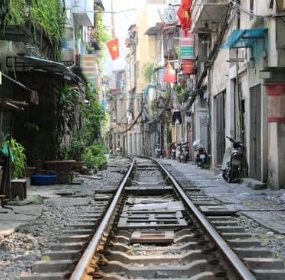
Crossing the road in Vietnam
When in larger cities like Hanoi and Ho Chi Minh City, you may find the prospect of crossing the road a challenge We found it easier to follow the locals and watch how they do it, keeping your head up and walking confidently at a constant steady pace…you’ll reach the other side in no time.
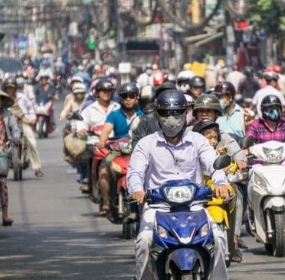
What is the best time to visit Vietnam?
The best time to visit Vietnam is from November to April during the dry season. Weather varies between regions but these months generally offer cooler temperatures and less rainfall.
Because of its geography, the climate in Vietnam varies drastically between the north and the south. Many travellers don’t realise this and mistakenly think the weather and temperature will be uniform for their entire trip.
Generally speaking, spring (March to April) and autumn (September to early December) are the most pleasant times to visit Vietnam. It’s not too cold yet in the north, and not too hot in the south or on the coast.
Remember the weather is unpredictable and can bring anything from freezing temperatures and frequent downpours to intense heat and evening storms.
In order to pick the right season, you should first have a firm idea of where you want to travel. If you only have a specific window of time when you can travel, then you might need to adjust your itinerary based on the weather.
Travel Insurance
Travel insurance is frequently regarded as one of the most important Vietnam travel tips for anyone preparing to visit. With so many adventure activities in Vietnam, from kayaking to motorbiking over the country’s mountainous terrain, having a solid insurance policy becomes essential.
Engaging in adventure activities without proper insurance could turn an exhilarating experience into a financial burden in case of mishaps. It is important to thoroughly understand what’s included in your insurance policy to ensure it aligns with your travel plans.
By carrying travel insurance, you’re not just safeguarding your trip, but also giving yourself peace of mind to fully immerse in Vietnam’s unique and thrilling offerings.
We use Staysure as they cover existing medical issues, of which i have a few.
